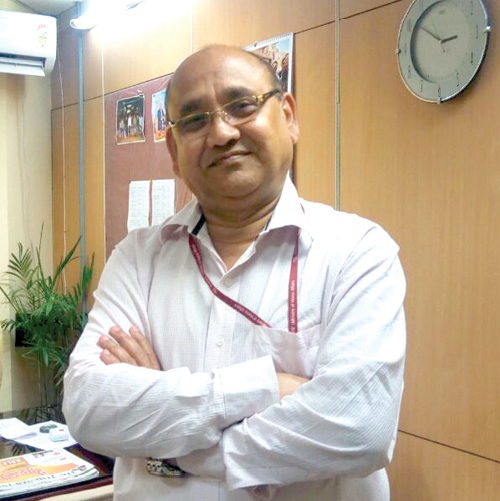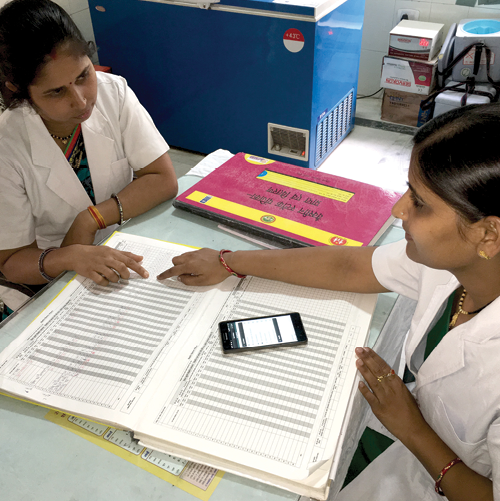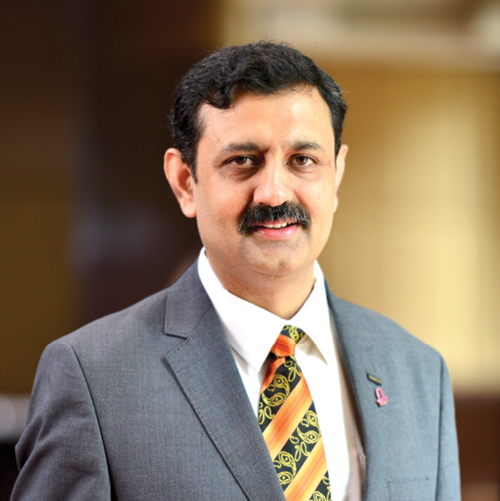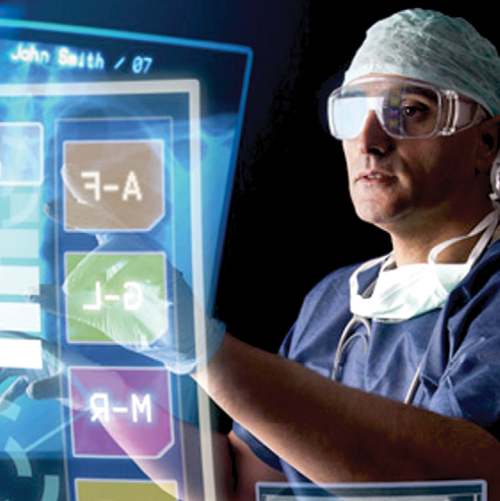
Pharmaceutical industry is more reactive than pro-active in technology adoption, primarily because of tight regulations and domain complexities. As it is related with individuals health, all such data of these industries are very sensitive. Theft of such important data is a big risk, says Mayur Parmar, Drug Inspector, Food and Drug Administration in conversation with Elets News Network (ENN).
 How innovations in technology space are changing the pharmaceutical industry?
How innovations in technology space are changing the pharmaceutical industry?
As you know the pharmaceutical industry is the second most regulated industry after civil aviation industry, adaptation to new technologies has to go parallel with the regulation. However, the industry is continuously evolving and adapting with the latest technologies like IOT, 3-D printing, Cloud computing, smart manufacturing, etc. These innovations are still in pipeline phase and hold the potential to change the basics of the industry by offering value propositions such as improved patient and healthcare professional engagement, cost optimisation, faster time to market, higher productivity and improved service for patients. Moreover, as a regulator, I view it as a very good tool for enhanced compliance adherence.

Information, research and new manufacturing techniques are some of the important drivers of growth for the pharmaceutical industry and theft of such important data can be a real-threat. So, how does company develop and implement potential security solutions to identify and mitigate such risks?
Well, pharmaceutical industry is more reactive than pro-active in technology adoption, primarily because of tight regulations and domain complexities. As it is related with the health of individual, all such data of these industries are very sensitive. Theft of such important data is a big risk. Implementation of this new ecosystem is not hassle free. It is imperative for a pharma company to conduct a detailed due diligence to analyse the people, process and technology readiness for such innovations. Data privacy, security and vulnerability management is something the company should work on.
What kind of latest innovations are you implementing in your manufacturing facilities and R&D Centres?
I am not directly involved with manufacturing facilities and R&D centres. However, I do visit such facilities for inspection. I see that many companies have started this transformation process toward these super technologies. I personally feel, if properly managed and regulated, the IOT will change the way of living of each and every individual of this globe. Well, not limiting to this, we can see lot of new changes like, Use of Auto-ID with AIDC (automated information data collection) for smart serialization, Real-time logistics visibility using RFID & sensors to capture and report parameters including temperature, smart warehousing and routing, Predictive maintenance of machines and equipment.
Artificial Intelligence (AI) and machine learning have brought a fundamental shift in drug development, how have these technological advancements brought in new opportunities to drug manufacturing or to bolster R&D efforts in the sector?
Honestly, I am hard pressed to think of areas where it will not be possible for AI to be a key driver. Now, with the advent of big data, companies are harnessing the power of AI to deliver more focused solutions in a variety of areas; AI helps them understand data in real-time. We can put machine learning under the broad umbrella of AI. On current date, we are just scratching the surface when it comes to AI and machine learning in pharmaceutical industry. I believe that AI can solve n number of problems related with the drug discovery process. The more than 10 year long process can be reduced to few 100 days with quite less expense. Apart from it, it has lot to do with genomics, cancer treatment and other frontiers of pharma industry. Even we should mention about the big players in this game like WATSON by IBM, DEEP MIND by Google etc. So, I feel that with these technologies tomorrow will be different than yesterday.

An adoption of cloud computing has granted pharmaceutical industry with enhanced scalability potential. Kindly apprise us on the major issues linked to the increased usage of cloud computing in the pharmaceutical industry.
There is no doubt that Cloud Computing offers an opportunity to the pharmaceutical community to innovate quicker, manage change faster and deliver new medicines to the market. According to few reports, nearly half of all pharma manufacturers are currently using a form of cloud-based infrastructure, or are at least considering it.
One can state many issues with this technology like Data security, Data migration issue, spying of private data, irreversible nature of data etc.
But the major issue I see as a regulator, with the cloud based infrastructure is Cloud Validation. It is undoubtedly a challenge, however by approaching Computer System Validation in a different way, organisations are demonstrating that it is possible to utilise the Cloud in our regulated environment and thus reap the benefits that this innovative technology offers. The future really does favour the brave “ now is the time for pharma organisations to rise to the challenge.
“There is no doubt that Cloud Computing offers an opportunity to the pharmaceutical community to innovate quicker, manage change faster and deliver new medicines to the market.”
How are you leveraging ICT to enhance your offerings and what could impact the growth of pharma – IT?
The government has to implement any change with great care. Still, all the governments of the world are now leveraging the benefits of ICT. E-governance is the talk of the town. The Government of India has done great in recent years for making governance smooth and easy. But I believe that much needs to be done. As an example, I would state about USFDA over here. The US Food and Drug Administration (FDA), with AWS, have used Cloud computing to reengineer the process for handling of their Adverse Drug Affects reports. By utilising AWS cloud, they have been able to quickly turn manual reports into machine readable information with 99.7 per cent accuracy, whilst at the same time reducing costs from $29 per page to $0.25 per page. Our current government is vibrant and accepting the innovation at ever-faster rate. I believe that there are huge possibilities for incorporation of these super technologies in government machineries and that will make betterment in the life of every citizen of India
Be a part of Elets Collaborative Initiatives. Join Us for Upcoming Events and explore business opportunities. Like us on Facebook , connect with us on LinkedIn and follow us on Twitter , Instagram.












